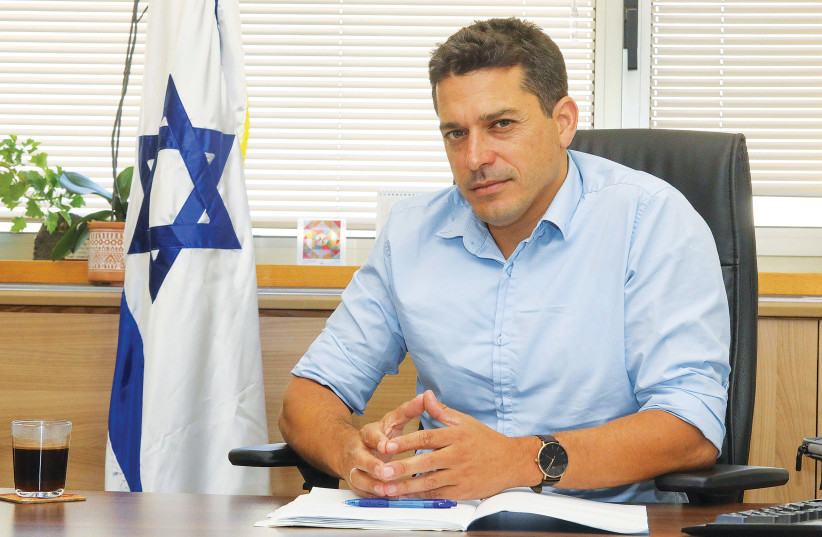Diaspora Affairs Minister Amichai Chikli is taking care to downplay fears of a sudden and drastic change to the so-called “Grandchild Clause” in The Law of Return. Speaking in an interview with journalist Miri Michaeli at the Israeli American Council (IAC) annual conference in Austin, Texas, on Thursday, Chikli said the government isn’t going to simply annul the clause but rather a committee will discuss this complex issue.
“No one is going to cancel the Law of Return, which is fundamental for the State of Israel. We will always be a safe haven for every Jew, everywhere on earth. And we are making efforts in the Diaspora.”
Amichai Chikli
“No one is going to cancel the Law of Return, which is fundamental for the State of Israel,” Chikli said. “We will always be a safe haven for every Jew, everywhere on earth. And we are making efforts in the Diaspora.”
Chikli is clearly aware of the fear that the reports of the mooted reform have evoked, particularly among many American Jews. Chikli said, “We are listening [to American Jews] and I spent hours listening to Jewish leaders who told me what they have to say about the Law of Return, of the judicial changes and everything else. We’re listening to the criticism; we’re listening to their concerns.”
Chikli said, “We’re not saying we are about to cancel the Grandchild Clause. What’s likely to happen is there’s going to be a committee to determine how we can deal with this serious challenge. And as you see, when you go into the details, that’s a challenge. We need Israel to be a strong Jewish state and we need to tackle this challenge.”
He noted that he had spoken to Prime Minister Benjamin Netanyahu and President Isaac Herzog before he went to the parley and he repeated that “no one is going to cancel anything tomorrow morning.”

Why has the Law of Return Grandchild Clause issue come up?
Chikli also took care to explain why the issue had come up. Recent data shows that in the 1990s, when there was mass aliyah from the Former Soviet Union, 93% of the immigrants to Israel were Jewish, but only 28% from these countries were Jewish in 2020.
It is important to note that while the Grandchild Clause has raised particular consternation among the non-Orthodox Jewish communities – particularly in the United States – the proposed revision to the law is aimed at tackling a different demographic element altogether. Fewer than 70 Americans have made aliyah using this clause in the past decade. In contrast, some 40,000 non-Jews, the vast majority of them from Russia and Ukraine, immigrated under this clause in the past year alone.
Under the Grandchild Clause, anyone with one Jewish grandparent is eligible for automatic Israeli citizenship – and the civic and financial benefits that come with it – along with their spouse and children and their children’s spouses, even if none are Jewish according to Halacha or even interested in becoming Jews. In fact, the Grandchild Clause is now closer to being a “great-grandparent clause.”
Under these circumstances, the law does need to have some changes made to it. Chikli in his interview stressed that the government would “listen and we’re going to do it very, very responsibly. And I think we can relax and we can rely on this government to do the best for the Jewish people.”
At the same time that a committee considers how to make necessary changes to the Law of Return sensibly and with sensitivity, the Diaspora Affairs minister and the ministry he heads should also make an effort to tackle the question of assimilation in Jewish communities abroad.
Most immigrants arriving in Israel, particularly from the US and other free countries, do so because of their identification with the Jewish state. It’s not an easy step to make and they deserve full support and encouragement.
Chikli is taking an important step in acknowledging the problems and trying to find a solution that does not alienate Israel from its brethren in the Diaspora while maintaining the Jewish majority within the state. A way needs to be found to allow potential immigrants and their families to come to Israel and make their homes here without significantly changing the nature of the state itself.
This requires careful thought and planning, not an overnight revamping of the Law of Return, which remains an essential tenet of Israel’s national existence.
